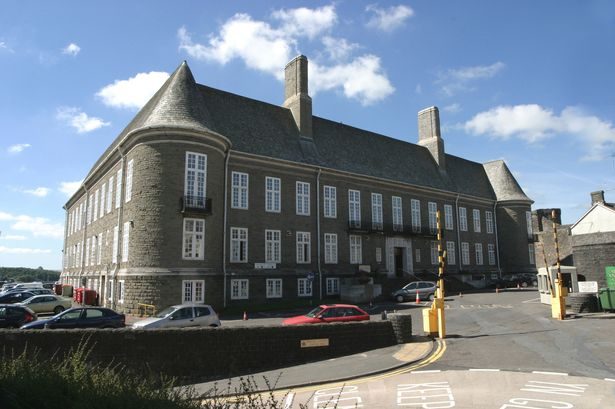CARMARTHENSHIRE County Council’s vision to increase bilingual education in Carmarthenshire will be a gradual journey over 10 years.
The Cabinet met yesterday (Monday, July 4) to discuss the Welsh in Education Strategic Plan (WESP), and emphasised that it was important to give all children and young people the opportunity to develop their Welsh language skills.
However, members stressed that families will still have a choice on the language in which their children will be taught over the next decade and after 2032.
The plan sets out how the council will develop Welsh language provision in schools based on the outcomes and targets set by the Welsh Government.
All councils across Wales have to submit 10-year Welsh language education plans to the Welsh Government in order to meet its target of one million Welsh speakers by 2050.

The outcomes include more nursery and reception children being taught through the medium of Welsh; more young people studying for qualifications in Welsh as a subject, and subjects through the medium of Welsh; increasing provision for learners with Additional Learning Needs; and increasing the number of teachers able to teach Welsh and through the medium of Welsh – with continuing support to develop staff through a comprehensive and flexible training programme.
The Cabinet said it was important for the council to provide more opportunities to be bilingual and referred to the various benefits it brings – from educational attainment to employability and health.
Cabinet Member for Education and Welsh Language, Cllr Glynog Davies said the aim was to meet and exceed the target set by Welsh Government on the percentage of Carmarthenshire pupils receiving their education through the medium of Welsh by 3032 (10-14%).
It included changing the language provision at 10 schools over the next 10 years creating an opportunity for a further 300 learners to be educated in Welsh.
He said: “We want to build on the progress made in early years education provision, and my ambition is clear – equal opportunities across the county.
“It is worth noting that we have the largest percentage 57.5 percent of nursery age children taught through the medium of Welsh. Immersion education is key to the strategy, and it is important that we continue to see an increase in the percentage of children transferring from the Meithrin groups to Welsh-medium education in the Foundation Phase.
“These early years are so important, the children are like sponges, absorbing information and absorbing a new language.
“We must then continue to see an increase in numbers in our reception classes, we say this even though we are the authority with the largest percentage (62.5 percent) of children receiving their education through the medium of Welsh.
“Children must continue to improve their Welsh when going from one school phase to another, and we need to make sure all children have the opportunity to pursue their secondary education through the medium of Welsh.
“At the same time, we need to give children and young people the confidence to use Welsh, in school and in the community. That’s what we want to see isn’t it, more and more using Welsh, hearing Welsh on the street. We need to develop and build on skills and confidence.”
Cabinet Member for Rural Affairs and Planning Policy, Cllr Ann Davies said: “I am extremely pleased to see this document and have a pleasure in supporting it. Working with young children, that is children under three-years-old, I can say that children pick up language very quickly, they absorb it, and the process is very different to learning a language. As they get older the process in the brain is completely different. I am pleased to see that there is an emphasis on early years, that is when we need to start.”
Cabinet Member for Resources, Cllr Alun Lenny said: “It is very important to state that there are many advantages to learning a language, obviously for careers, especially in health and social care where patients and clients must have a choice of language, it’s important particularly for older people, and young children, and people with dementia.
“The Chief Constable of Dyfed-Powys Police has stated he is keen for all his staff to speak a certain level of Welsh, so we have a duty here to support that.
“The advantages of being bilingual are multiple, socially and in the world of work, and this strategy is very much welcomed.”
The WESP has come back to the cabinet for discussion following feedback from the Welsh Government, mainly to include some additional data and detail. It will now be submitted to the Welsh Government for final approval. A public consultation was held last year.















Add Comment